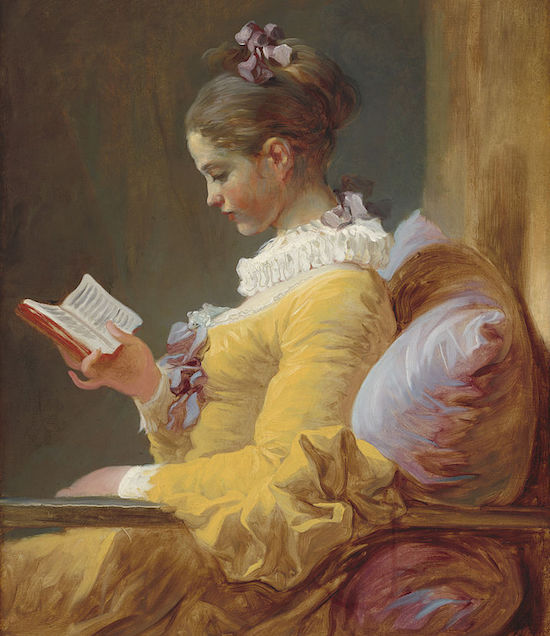Leisure • Culture
The Importance of Books
Around 130 million books have been published in the history of humanity; a heavy reader will at best get through 6,000 in a lifetime. Most of them won’t be much fun or very memorable. Books are like people; we meet many but fall in love very seldom. Perhaps only thirty books will ever truly mark us. They will be different for each of us, but the way in which they affect us will be similar.
The core – and perhaps unexpected – thing that books do for us is simplify. It sounds odd, because we think of literature as sophisticated. But there are powerful ways in which books organise, and clarify our concerns – and in this sense simplify.
Centrally, by telling a story a book is radically simpler than lived experience. The writer omits a huge amount that could have been added in (and in life always – by necessity – is there). In the plot, we move from one important moment directly to the next – whereas in life there are endless sub-plots that distract and confuse us. In a story, the key events of a marriage unfold across a few dozen pages: in life they are spread over many years and interleaved with hundreds of business meetings, holidays, hours spent watching television, chats with one’s parents, shopping trips and dentist’s appointments. The compressed logic of a plot corrects the chaos of existence: the links between events can be made much more obvious. We understand – finally – what is going on.

Writers often do a lot of explaining along the way. They frequently shed light on why a character is acting as they do; they reveal people’s secret thoughts and motives. The characters are much more clearly defined than the people we actually encounter. On the page, we meet purer villains, braver more resourceful heroes, people whose suffering is more obvious or whose virtues are more striking than would ever normally be the case. They – and their actions – provide us with simplified targets for our emotional lives. We can love or revile them, pity them or condemn them more neatly than we ever can our friends and acquaintances.
We need simplification because our minds get checkmated by the complexity of our lives. The writer, on rare but hugely significant occasions, puts into words feelings that had long eluded us, they know us better than we know ourselves. They seem to be narrating our own stories, but with a clarity we could never achieve.
Literature corrects our native inarticulacy. So often we feel lost for words; we’re impressed by the sight of a bird wheeling in the dusk sky; we’re aware of a particular atmosphere at dawn, we love someone’s slightly wild but sympathetic manner. We struggle to verbalise our feelings; we may end up remarking: ‘that’s so nice’. Our feelings seem too complex, subtle, vague and elusive for us to be able to spell out. The ideal writer homes in on a few striking things: the angle of the wing; the slow movement of the largest branch of a tree; the angle of the mouth in a smile. Simplification doesn’t betray the nuance of life, it renders life more visible.
The great writers build bridges to people we might otherwise have dismissed as unfeasibly strange or unsympathetic. They cut through to the common core of experience. By selection and emphasis, they reveal the important things we share. They show us where to look.
They help us to feel. Often we want to be good, we want to care, we want to feel warmly and tenderly – but can’t. It seems there is no suitable receptacle in our ordinary lives into which our emotions can vent themselves. Our relationships are too compromised and fraught. It can feel too risky to be very nice to someone who might not reciprocate. So we don’t do much feeling; we freeze over. But then – in the pages of a story – we meet someone, perhaps she is very beautiful, tender, sensitive, young and dying; and we weep for her and all the cruelty and injustice of the world. And we come away, not devastated, but refreshed. Our emotional muscles are exercised and their strength rendered newly available for our lives.
Not all books necessarily contain the simplifications we happen to need. We are often not in the right place to make use of the knowledge a book has to offer. The task of linking the right book to the right person at the right time hasn’t yet received the attention it deserves: newspapers and friends recommend books to us because they work for them, without quite thinking through why they might also work for us. But when we happen to come across the ideal book for us we are presented with an extraordinarily clearer, more lucid, better organised account of our own concerns and experiences: for a time at least our minds become less clouded and our hearts become more accurately sensitive. Through books’ benign simplification, we become a little better at being who we always really were.




























